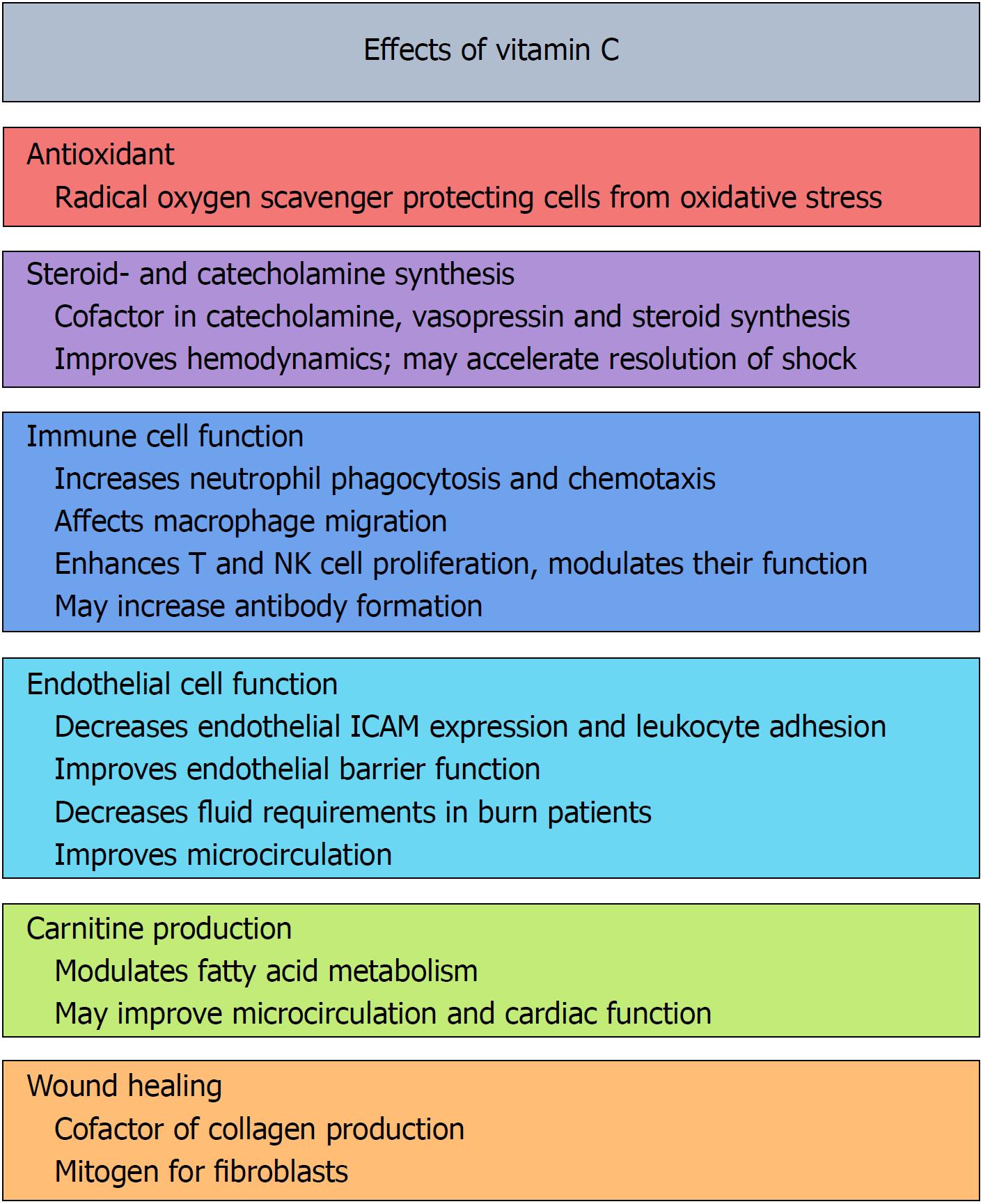https://www.wjgnet.com/2220-3141/full/v7/i5/52.htm
Published online Oct 16, 2018. doi: 10.5492/wjccm.v7.i5.52
Vitamin C in the critically ill – indications and controversies
Ascorbic acid (vitamin C) elicits pleiotropic effects in the body. Among its functions, it serves as a potent anti-oxidant, a co-factor in collagen and catecholamine synthesis, and a modulator of immune cell biology.Furthermore, an increasing body of evidence suggests that high-dose vitamin C administration improves hemodynamics, end-organ function, and may improve survival in critically ill patients. This article reviews studies that evaluate vitamin C in pre-clinical models and clinical trials with respect to its therapeutic potential.
- Citation: Nabzdyk CS, Bittner EA. Vitamin C in the critically ill – indications and controversies. World J Crit Care Med 2018; 7(5): 52-61
- URL: https://www.wjgnet.com/2220-3141/full/v7/i5/52.htm
- DOI: https://dx.doi.org/10.5492/wjccm.v7.i5.52
Vitamin C is one of the most well-known essential nutrients and is believed by many to confer a litany of health benefits (Figure 1). The Nobel Prize Winner Linus Pauling may have been the foremost ambassador to date who suggested that vitamin C would enhance cardiovascular health, improve the body’s immune function to overcome infections, and even help abate cancer[1–4]. These health claims created significant controversies that lasted for decades. While many of Pauling’s “more is better” claims have not been supported by rigorous scientific investigation, a growing number of benefits of vitamin C administration have been identified for medical treatment, including in the field of critical care. This mini-review will examine the evidence in support of vitamin C administration for critically ill patients and provide general recommendations for use by intensive care unit practitioners.

